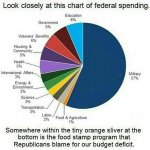- Joined
- Jun 23, 2014
- Messages
- 13,018
- Reaction score
- 6,982
- Location
- Near Atlanta Georgia
- Gender
- Male
- Political Leaning
- Slightly Conservative
read in a thread a while back what i thought was a decent idea
needed tweaking, but the base idea had a LOT of merit
our infrastructure is in disarray....i think most people would agree with that. Bridges, roads, and so many other projects that havent been kept up, or new ones that need building.....but funding has and will always be an issue.
just as we did back in the 30's and 40's i wouldnt mind seeing huge projects like these done.....
it would create jobs....
but i would want to see some decrease in other benefits to help pay for it.....we dont have to end the other programs....as some people wont benefit by the jobs program....but it should be enough that we can reduce them a bit
now this is from a conservative....and i am willing to see something like this done
helps the people and helps the country....win/win
needed tweaking, but the base idea had a LOT of merit
our infrastructure is in disarray....i think most people would agree with that. Bridges, roads, and so many other projects that havent been kept up, or new ones that need building.....but funding has and will always be an issue.
just as we did back in the 30's and 40's i wouldnt mind seeing huge projects like these done.....
it would create jobs....
but i would want to see some decrease in other benefits to help pay for it.....we dont have to end the other programs....as some people wont benefit by the jobs program....but it should be enough that we can reduce them a bit
now this is from a conservative....and i am willing to see something like this done
helps the people and helps the country....win/win

